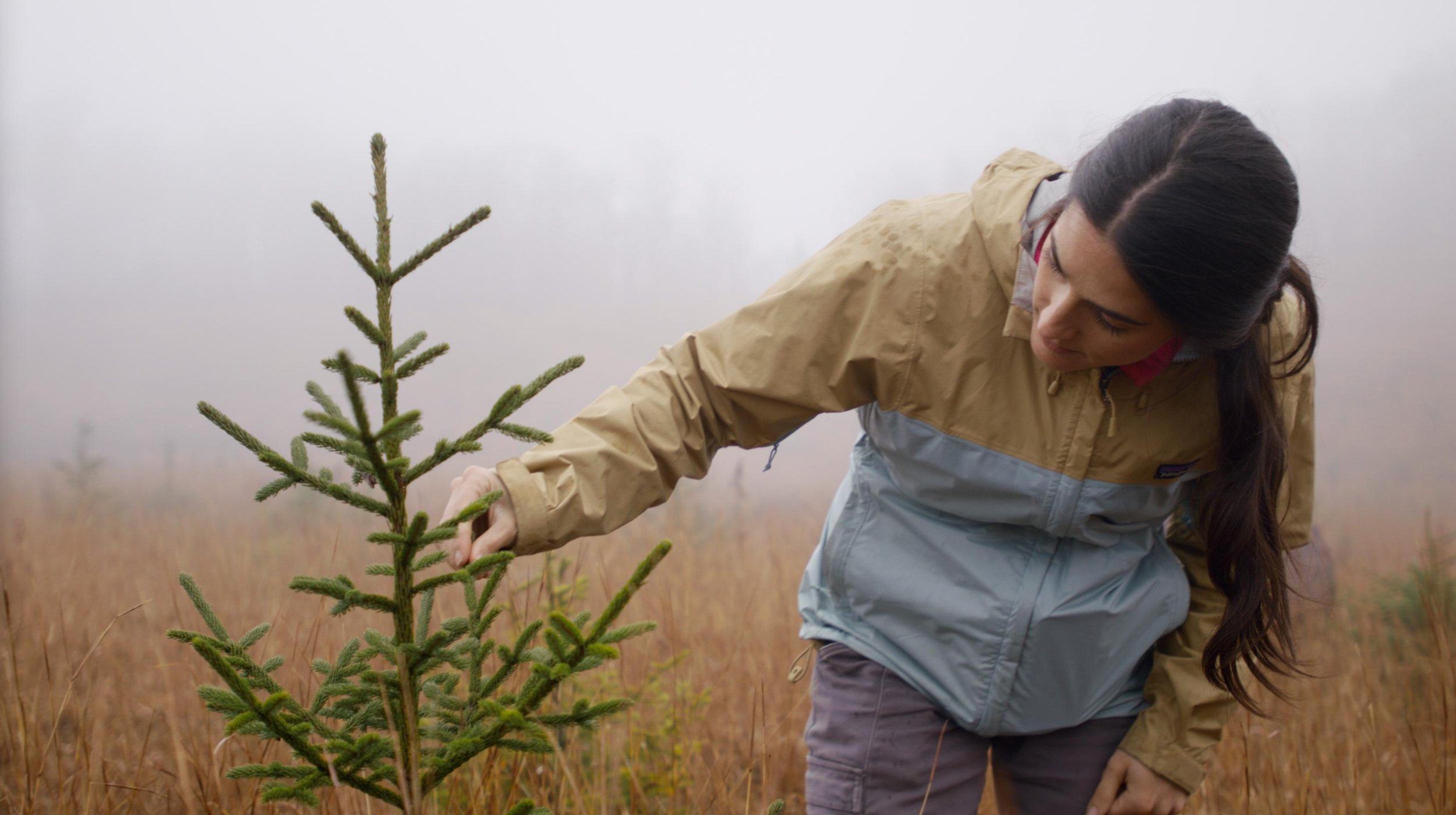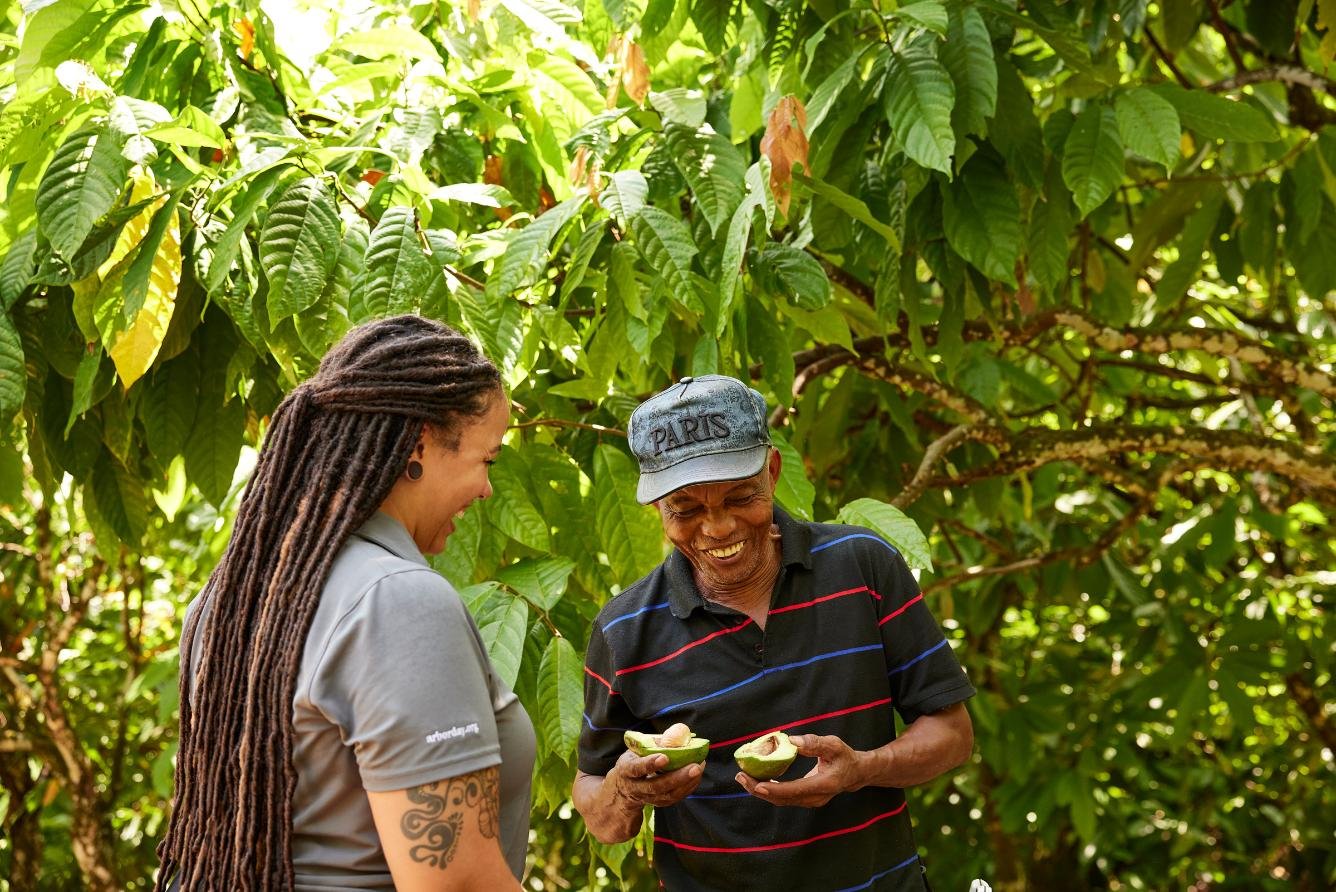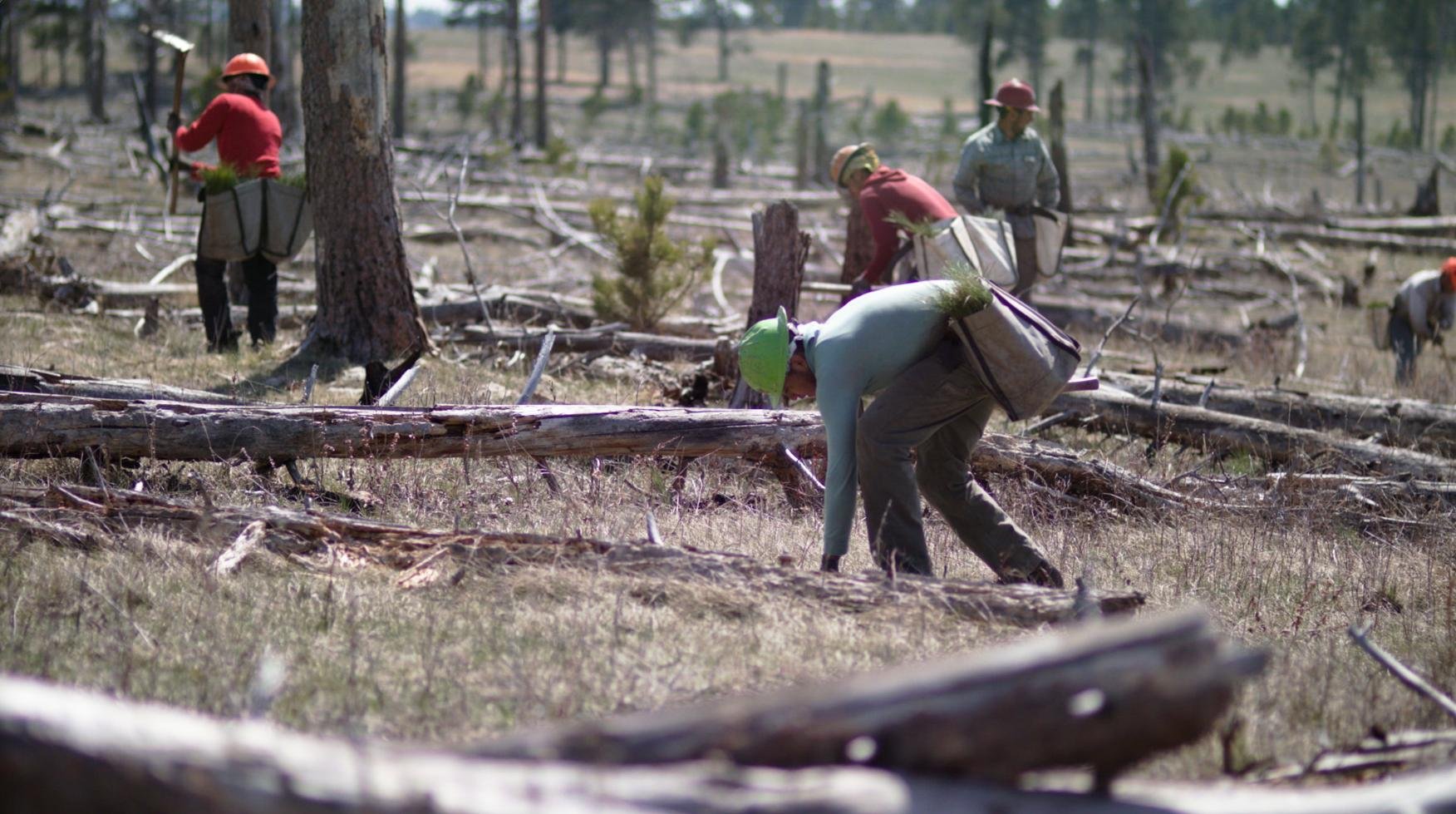
Advancing Reforestation for Climate, Biodiversity, Equity and Communities

Registered Participants can log in here for event details

Insights from the Retreat
In the face of the urgent climate crisis, reforestation emerges as a critical strategy for climate mitigation, biodiversity conservation, equity, and community resilience. The Volgenau Climate Initiative (VCI) recently hosted a transformative retreat titled "Advancing Reforestation for Climate, Biodiversity, Equity, and Communities" at the Arbor Day Farm in Nebraska. This gathering brought together a diverse group of leaders and practitioners committed to scaling reforestation efforts. Here, we share key insights and outcomes from the retreat.
Diverse Participation and Deep Connections
The retreat gathered a diversity of perspectives and life experiences with attendees representing various sectors, including national and grassroots nonprofits, private sector companies, inter-tribal reforestation networks, university forestry departments, and the Forest Service (USFS). This diversity extended beyond professional backgrounds to encompass different levels of familiarity with each other and varying degrees of comfort with the retreat's sessions designed to foster deeper connections.
In honor of Juneteenth, James Williams, representing the Center for Heirs’ Property Preservation, shared the rich history of Black lumberjacks and loggers, in the South. He explained the potential that heirs properties have for forest management and reforestation. Our Juneteenth forestry presentation highlighted the importance of forest products in sustainable management and how they provide livelihood opportunities for Black communities in the south.
The retreat featured participants ranging from seasoned professionals to newcomers in the reforestation field, ensuring a wide spectrum of perspectives and experiences. This mix facilitated rich exchanges of ideas and fostered a robust network essential for advancing reforestation initiatives. Engaging in deep dialogue exercises revealed new layers of understanding and commitment among participants, highlighting the value of diverse viewpoints in shaping effective strategies.
"I appreciate the thoughtful and deliberate choice of participants. I was very nervous initially and appreciated that the participants came with an open mind, that there was time and space to create trust. I appreciated the break times and the centering and grounding throughout."
Moreover, the retreat placed significant emphasis on building personal connections. Sharing deeply personal stories was a pivotal aspect of the gathering, strengthening bonds among participants and creating a supportive community. These personal connections are expected to translate into professional collaborations, enhancing the collective impact of the reforestation movement.
Strategic Actions and Future Steps
One of the most significant outcomes of the retreat was the development of clear action points and future steps aimed at scaling reforestation efforts. Participants identified several key initiatives that will guide their work moving forward:
Building a Hub for Information Sharing: The retreat underscored the necessity of establishing a robust network to streamline policy recommendations, modeling, and funding mechanisms for reforestation efforts. This hub will enhance its role as a spatial system for sharing reforestation data at the county level across the US. A working group will be formed to outline immediate achievable changes versus long-term goals, leveraging existing resources to bridge gaps and enhance reforestation efforts.
Creation of an Impact Fund for Reforestation: The creation of an online space to consolidate funding opportunities and needs was proposed, aiming to ensure equitable access by highlighting historically overlooked funding needs and actors. Supported by a "Reforestation Impact Fund" and a unified prospectus for investors, this initiative will streamline impact investment into the sector. Working groups will be established to define next steps for each initiative and ensure readiness for upcoming investment summits.
Development of a Policy Platform: Developing a shared tool for policy dialogue and scenario building was another key action point. This tool will support forest protection, management, and reforestation in the U.S. by incorporating lessons from successful models and building on existing technical work. A convening hub and technical partnership will be established to support this initiative, focusing on comprehensive, data-driven policy frameworks.
Coordinating Entity for Networking: A coordinating entity will serve as a networking center for the entire community. This entity will ensure diverse and equitable representation, incorporating input from a wide range of stakeholders, including national coalitions and tribal organizations. It will play a crucial role in maintaining the momentum of the retreat, including the four initiatives and the new connections, moving forward.
"The retreat helped us crystallize approaches to challenges and opportunities we were already carrying as a community. It reinforced the importance of reaching out to build the Mother Tree Network by researching and connecting with other organizations working in the same field."
Looking ahead
The retreat successfully blended personal connections with strategic actions, offering a promising path forward for the reforestation movement. The insights and actions from this retreat will help build a resilient, inclusive, and effective movement capable of addressing the urgent challenges of our time.
VCI is currently working with the host committee to identify where rapid follow-up grants can be most helpful and impactful. By integrating these insights and action steps, the reforestation community can take significant strides toward a future where reforestation efforts are scaled effectively, benefiting our climate, biodiversity, and communities.

retreat focus
Deforestation is a major contributor to climate change, biodiversity loss, and degraded soils and water. Reforestation represents a critical opportunity to pull carbon dioxide out of the atmosphere, helping to cool our planet while also providing clean air, clean water, habitat for wildlife, and resilient rural communities.
How can we ignite and strengthen reforestation initiatives and target high priority opportunities? What are the critical new finance models and policy frameworks? How do we accelerate progress on private and public lands while ensuring multiple co-benefits for the climate, biodiversity, equity and local communities?
The retreat will focus on two primary objectives: 1) building a network of deeply bonded and diverse reforestation leaders, representing a range of perspectives and programs; and 2) advancing our collective understanding of the field, its threats, opportunities and a shared sense of what initiatives and key steps are essential in the coming few years. Together, we will assess opportunities for advancing reforestation predominantly in the United States.
Dominican Republic photo with Plant with Purpoase/Floresta.
Photography by Starboard and Port (Chase Heilman)
All photos on this page courtesy of the Arbor Day Foundation

Inspiration and Resources
2 billion trees over 10 years is one part of our commitment to nature-based climate solutions
Accounting for albedo change to identify climate-positive tree cover restoration
A century of reforestation helped keep the eastern US cool, study finds
Applied nucleation as a forest restoration strategy
Braiding Sweetgrass, Robin Wall Kimmerer
Breathing Life Into a Ghost Town: The Story of a Maxville Heritage Interpretive Center
Canadians Aren’t Listening to Climate Messaging? Maybe It’s Time to Listen Back
Catalog of Unabashed Gratitude, Ross Gay
Challenges to the Reforestation Pipeline in the United States, A great primer on the limits to the reforestation pipeline today.
Climate change: Planting new forests 'can do more harm than good'
Climate-Smart Forestry: Promise and risks for forests, society, and climate, Lauren Cooper and David MacFarlane
Cross-cutting strategies with a current focus on three geographies
Crushed Wild Mint, Jess Housty
Demand Assessment of US Land Restoration & Reforestation Value Chain: Module 1- New Leaf Climate
Design Justice is a great primer on co-design practices to dismantle structural inequality and discrimination. While based on the tech world, the lessons are transferable.
Dispatches from Mother Trees, Suzanne Simard, Bioneers video
Embers, Richard Wagamese
Fermentation as Metaphor, Sandor Katz
Future Home of the Living God, Louise Erdrich
Global forest restoration goals can be achieved with youth-led ecopreneurship
How Climate Action Can Reboot Economies in Rural America
How forests can cut carbon, restore ecosystems, and create jobs
How to Revive a Burned Forest? Rebuild the Tree Supply Chain
How We Became Human, Joy Harjo
IUCN's Restoration Report 2022
Mapping where there planing has the great climate benefit
Mind the Gap’—reforestation needs vs. reforestation capacity in the western United States
Multisolving: Making Systems Whole, Healthy, and Sustainable: SSIR
Reforestation done right is a multi-tasking climate solution, Jad Daley
Reinvesting in the Mississippi Delta: A new reforestation program pays landowners for the environmental benefits that come from restoring forests on their most flood-prone lands.
Speech by Tom Tidwell, Chief of USFS - Investing in the Restoration Economy
Strengthening Tribal Consultations and Nation-to-Nation Relationships
Systems Thinking and How It Can Help Build a Sustainable World
To Love the Wind and Rain - African Americans and Environmental History
The Bear, Andrew Krivak
The Book of Delights, Ross Gay
The Fire Next Time by James Baldwin (book)
The Mother Tree Project at the University of British Columbia
The Overstory, Richard Powers
We are the Weather, Jonathan Safran Foer
Whitebark, Glacier NPS video



